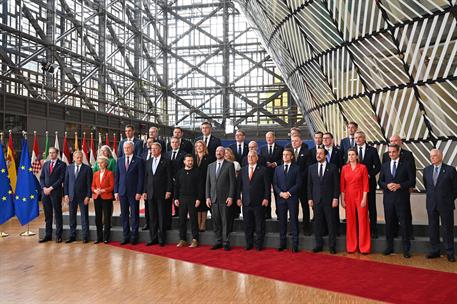 The Minister for the Presidency, Justice and Parliamentary Relations, Félix Bolaños, attends the second Justice and Home Affairs (JHA) Council meeting of the Hungarian presidency and the first following the appointment of the new European Commission
The Minister for the Presidency, Justice and Parliamentary Relations, Félix Bolaños, attends the second Justice and Home Affairs (JHA) Council meeting of the Hungarian presidency and the first following the appointment of the new European Commission
In the Justice session, they discussed various legislative initiatives, including two proposals for directives: one on the smuggling of migrants and the other on the sexual abuse of minors.
Rejection of the criminalisation of humanitarian assistance
EU justice ministers discussed a proposal for a directive establishing minimum standards to prevent the smuggling of migrants.
In recent months, Spain has been at the forefront of rejecting the criminalisation of humanitarian aid and, therefore, the need to include a clause in the articles of this directive to exclude humanitarian assistance to migrants from any sanction. Consequently, during this morning's debate, the minister defended the demand for this guarantee, which affects, above all, immediate family members and humanitarian organisations involved in the rescue and assistance of migrants.
In any case, the Spanish administration will maintain its full support for these organisations while intensifying the fight against criminal organisations dedicated to human trafficking, thus defending a migration approach based on human rights and border security.
Another central element of the meeting revolved around a proposal for a directive on combating the sexual abuse and sexual exploitation of children and child sexual abuse material.
Spain has rejected the general thrust of the directive on the grounds that the definition of consent in the directive should be broader and more ambitious, in line with more advanced legislation, including that of Spain.
The minister acknowledged the changes made in recent months at the request of Spain, among other countries. These include, for example, that consent be defined in the positive and not in the negative, or that offences in the digital sphere be contemplated, in which our country has also been a pioneer. However, this progress has not been sufficient for Spain to support the text as it stands.
Fight against drug trafficking and organised crime
Finally, in terms of non-legislative initiatives, the JHA addressed the fight against drug trafficking and organised crime, and against impunity in the context of Russia's war of aggression against Ukraine, among other issues.
Non official translation







